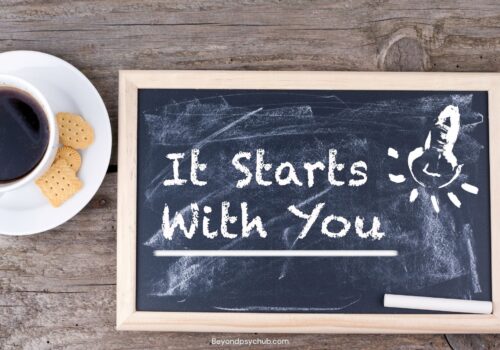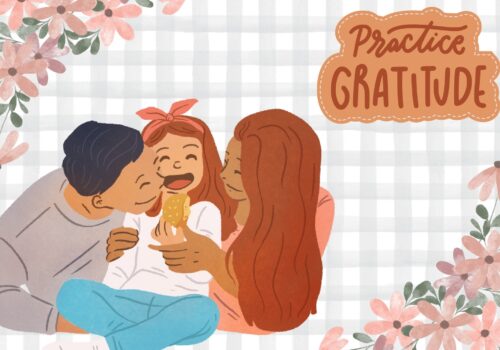Life is not a bed of roses. In our life, we face a lot of ups and downs. One of the unpleasant experiences life seems to throw our way to keep things intriguing is Rejection. Everybody experiences it, and it feels like being slapped by someone in the face. Before discussing the 4 ways to deal with rejection, let us define what Rejection is.
Rejection is a feeling we experience when we’re not accepted, included, or approved of by someone or something. Additionally, rejection is like a loss that makes us feel unwelcome and unworthy, which is called as Rejection-Sensitive-Dysphoria.
Rejection can have a damaging effect on our mental condition. It causes us to become more angry, depressed, anxious, and have other bad feelings. Perhaps even impairing intelligence, causing hostility, and decreasing impulse control.
Types Of Rejection
Rejection is frequently a part of life. Everyone faces rejection when it proceeds in life. There are several types of rejections. Some kinds of rejection might be harder to handle than others. The types of rejection include
Rejection from family
Family rejection can take place in the form of violence, abandonment, neglect, or the denial of affection and love. Parental rejection is the most common. An individual is likely to be affected by this kind of rejection for the rest of their lives, which could have long-term negative effects.
Social rejection
This kind of rejection can happen to anyone at any stage of life and frequently starts in early infancy. Bullying and detachment at work or school are two examples of social rejection, although they can affect any social circle. People who defy the status quo or lead unconventional lives are possibly more likely to experience social rejection.
Rejection in a relationship
People often encounter rejection during courting or in a committed relationship. Examples include withholding affection or closeness from a spouse and avoiding discussing an experience or occasion with them. Or treating them like a casual interest. When someone intends to end a relationship. This could also make the other person experience the feeling of being rejected.
Romantic rejection
Romantic rejection can happen when someone requests a date but is turned down. However, this might sometimes be referred to as sexual rejection. A person who has been rejected romantically might not always be interested in establishing a new sexual connection.
Any rejection can be painful, but when it comes from a trustworthy beloved, it can negatively affect one’s sense of self-worth and ego. But people can come back from mental trauma after getting to know 4 ways to deal with rejection. These help people a lot to be normal after rejection.
Mental Reactions To Rejection
As rejection can leave people feeling as though they are not valued, wanted, respected, or accepted, rejection can be incredibly hurtful. The majority of people will suffer rejection many times during their lives. For example, a student might feel rejected by stern or impolite teacher. At the same time, a youngster may feel rejected momentarily by a busy parent. These kinds of rejection are much less likely to have lifetime impacts and may go away quickly. Some reactions to rejection include –
Depression
Teenagers who endure rejection are more likely to develop despair; nevertheless, individuals who encounter rejection may also experience depression. Bullying, which is simply a mix of exclusion and humiliation, can also have various harmful impacts, such as stress, depression, self-harming behavior, and eating disorders.
Trauma
A rejection that lasts for a long time or causes intense sensations can cause trauma and negative psychological effects. For instance, children who are regularly rejected by their parents may struggle academically and socially with their classmates. Some people endure a persistent dread of rejection, frequently due to several painful rejection experiences throughout infancy.
Stress and anxiety
Rejection may aggravate pre-existing symptoms like anxiety and stress or cause their onset. In the same way, such and other issues with mental health can intensify the emotions of rejection. After discussing the types and harmful effects of rejection, let us know what 4 ways to deal with rejection are.
4 Ways To Deal With Rejection
Everyone is vulnerable to rejection at a different level. However, some people are more strong than others in dealing the rejection. We all must deal with it full of wisdom during different periods in our lifetime. Whether it happens to you at home, at work, or on our social networks. How, then, do we overcome rejection and proceed? The psychologists advise you to take benefit of it. Here are 4 ways to deal with rejection in the following
Accept the rejection and endure the loss
According to Andrea Marcellus that the hardest and initial step after being rejected is to accept the rejection. However, it does not mean devaluing yourself. The joining decision depends on what you are offering the other party whether it is the coach, or any other person. Accepting rejection includes acknowledging it happened and channeling the emotional influence it has over you.
For example, The college hockey team did not include you in the team. Consequently, it will sting you badly. But looking back, you realize that it might have been that you were not as dedicated to the college hockey team as the other athletes do. You can also think that maybe the coach thinks you’re overextended.
No doubt it is more challenging, but if you see this rejection as a chance to understand better your priorities and where you can put your efforts, you’ll gain more insight from it than joining the team could ever do.
Stop blaming yourself and gather your strength
It is natural to question why you are rejected. However, Sharon Martin says that sometimes there aren’t obvious explanations for rejection. When we don’t know the answers, we frequently place the responsibility on ourselves, believing that we did something wrong. That we weren’t good enough. Similarly, feeling that we are foolish, unpleasant, or unworthy of love. Keep in mind that you might have grown up with the belief that you’re unworthy and that you are responsible for being rejected. You can now decide to reject these notions. You’re more able to explore alternate suppositions grounds for denying an adult. Even the most appealing, intelligent, competent, and many people might be rejected for a variety of reasons.
After that, ask yourself what is valuable and what would be the strategy to grab the other opportunity.
Even though it can be helpful to examine your actions and mannerisms occasionally, rejection isn’t always the result of something you did wrong. Quite often, the CEO decides to hire his nephew instead of you for the job, or an initial date doesn’t contact you back, thinking that the guy is nervous. It’s rarely about you, and it’s unreasonable to place the blame on yourself, take ownership of circumstances beyond your control, or prove guilt for wrongdoing.
Accept rejection as a kind of defense and stay positive
Consider a period when you experienced rejection. What chance presented itself that couldn’t have been possible without this unfortunate event? Marcellus encourages people to view rejection as a positive thing because it signals the arrival of something better. She also says that the key is to gain benefit from every experience and let rejections help you progress. Rejection gives us the chance to make clear what we want, what we need, and what we can give up. This thing will help us be positive.
For example, you find yourself being rejected by the partner you enjoyed so much fun with after a passionate flurry of dates. Even if things were just getting started, you saw a lifetime together. Thus the rejection hurts. Here is the main question, depending upon your remoteness, did you actually connect with anyone. Have you two ever had lengthy discussions regarding your aims and goals? Possibly not; although rejection hurts, it also teaches you how to proceed with dating more sagely in the future.
Don’t stop and move forward
Many artists and Writers are known for persevering in the face of repeated rejection. They acknowledge that rejection is an important element of progress and is required to get published or start a great life, which contributes to their capacity to achieve this. They do not even take it personally since they view it as common and essential. This kind of acceptance consistently helps lessen the hurt of rejection.
You can handle rejection more effectively if you do a combination of dealing with the loss you experience when you’re rejected, don’t blame yourself for the rejection, concentrating on your strengths and resiliency, and acknowledging that rejection is a common occurrence.
So, everyone faces rejection in his life with different intensities. Mentally strong people always try to learn from rejection. They question what I gained from this rejection so that they can learn more and more instead of simply enduring the pain, and they take it as a chance to get better. With each rejection, they get progressively better.
Rejection can be a useful teacher. Rejection isn’t as bad as you thought. Take the chance to go forward with better knowledge after rejection with the help of the previously discussed 4 ways to deal with rejection.















